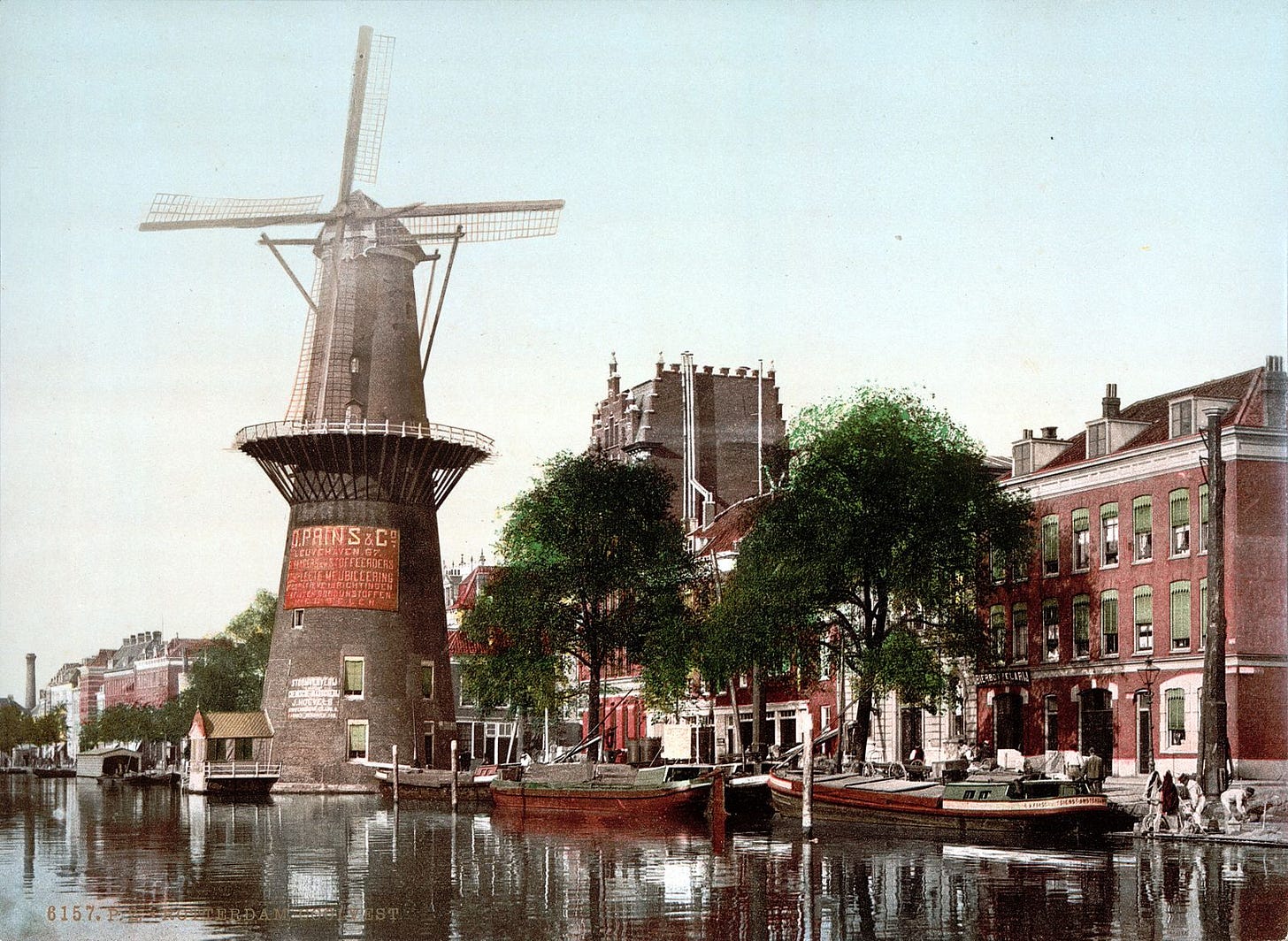Patrick Leigh Fermor’s Old Europe
Also: The friendship of Dickens and Collins, a plagiarizing ghostwriter, the Jewish art of R.B. Kitaj, Rome’s oldest building, and more.

In The Critic, Michael Duggan revisit Patrick Leigh Fermor’s A Time of Gifts about Fermor’s trip across Europe on foot when he was 18.
“Paddy” spent barely an hour in Rotterdam. It occupies barely more than a page of A Time of Gifts, the book which recounts all that happened on the first part of his trek, from Holland right up to the Hungarian border. Nevertheless, two human qualities take centre stage in the Dutch port and remain there for more or less the entirety of the book. The Rotterdam episode also sounds a bass note of sadness about the fate of Europe that must accompany any reading of Fermor.
The first of the human qualities is the kindness of strangers — in this case, the kindness of the owner of a quayside café, a “stout man in clogs”, Fermor’s first host on European soil. As dawn breaks, whilst the landlord polishes his glasses and cups, arranging them “in glittering ranks”, Paddy has the best fried eggs and coffee he has ever eaten. When he is finished and heads for the door, the stout man asks where he is going:
‘I said “Constantinople.” His brows went up and he signalled to me to wait: then he set out two small glasses and filled them with transparent liquid from a long stone bottle. We clinked them: he emptied his at one gulp and I did the same. With his wishes for godspeed in my ears and an infernal bonfire of Bols and a hand smarting from his valedictory shake, I set off. It was the formal start of my journey.’
Again and again over the course of his trek, Fermor, who was only eighteen at the time, encountered this tradition of benevolence to the wandering young . . . Paddy thanks God that he had put “student” on his passport (even though, at the time, he wasn’t really a student in any formal sense). The word was “an amulet and an Open Sesame. In European tradition, the word suggested a youthful, needy and earnest figure, spurred along the highways ( … ) by a thirst for learning — ( … ) a fit candidate for succour”.
The second quality that shines out of the Rotterdam episode, and out of page after page of A Time of Gifts, is one belonging to Paddy himself. This was his inimitable and expansive form of erudition, encompassing literature, religion, art and architecture, combining humility and panache in perfect, improbable harmony.
Duggan notes that the Rotterdam that Fermor visited at 18 no longer exists. It was “bombed to fragments,” as Fermor notes, in May 1940.
I don’t know if the “tradition of benevolence to the wandering young” exists anymore either. The young still wander. It is still the practice in Europe to go on a months-long trip after graduating from secondary school or the gymnasium or at some point in one’s late teens or early twenties, though perhaps young people don’t do it as much as they once did. But the vibrant small towns of old Europe that made such hospitality possible, with their networks of tradesman and small farms, don’t exist anymore. Most small towns are dead because the small farms have long since been bought up by enormous, macro-farm operations. The trades and local industries that were dependent on the farms disappeared, too. If small towns are still alive, it is because of tourism, and if you make your living selling beds to travels, you don’t give them away for free.
In other news, Hannah Gal writes about the enduring friendship of Charles Dickens and Wilkie Collins: “Dickens and Collins met in 1851 when they both performed in Not So Bad As We Seem, a play written by their mutual friend Edward Bulwer-Lytton. The two men came from very different backgrounds. ‘Wilkie came from a stable middle-class home,’ Harper says. ‘At 13, he even goes to Italy on a family holiday, whereas 11-year-old Dickens worked at a rat-infested blacking factory that traumatised him for life. He had lived in 22 homes before he moved to Doughty Street.’ By the time they met, Dickens was 12 years older than Collins and already an established writer. Still, differences in upbringing and age notwithstanding, the two men quickly forged a mutually rewarding, two-decade friendship that would endure until Dickens’s death in 1870—traveling and writing together, and even becoming linked by family marriage.”
Benjamin Dreyer, author of Dreyer’s English, is retiring from Random House. He talks to Scott Simon about his time in publishing: “I've had lovely relationships with the authors that I've had the pleasure of working with. Working on a manuscript by Shirley Jackson, which was just, for me, a sort of an odd, unlikely dream come true - she'd been my favorite writer for decades. And suddenly, I find myself working on this collection of, indeed, material that she had left behind. And with any writer, really, but particularly one who can't talk back, you have to figure out how to approach the text in an extremely respectful fashion, trying to make a writer's manuscript into the best possible book you can get out of it.”
Keep reading with a 7-day free trial
Subscribe to Prufrock to keep reading this post and get 7 days of free access to the full post archives.



